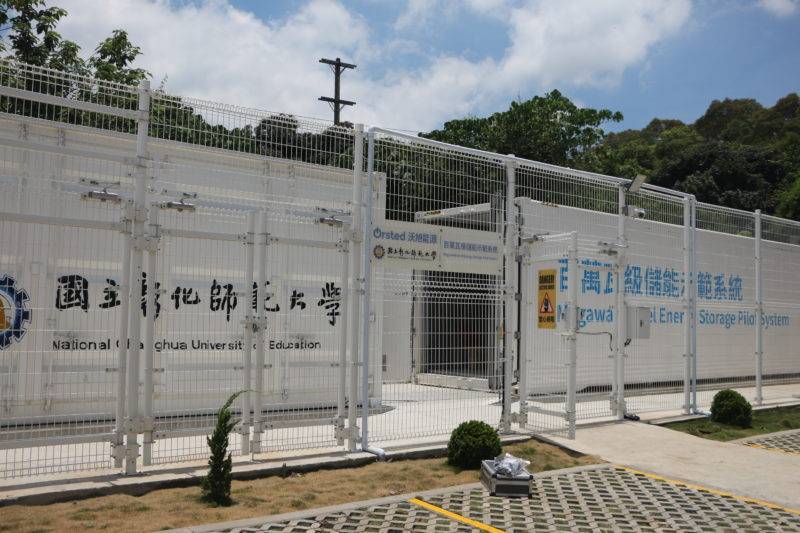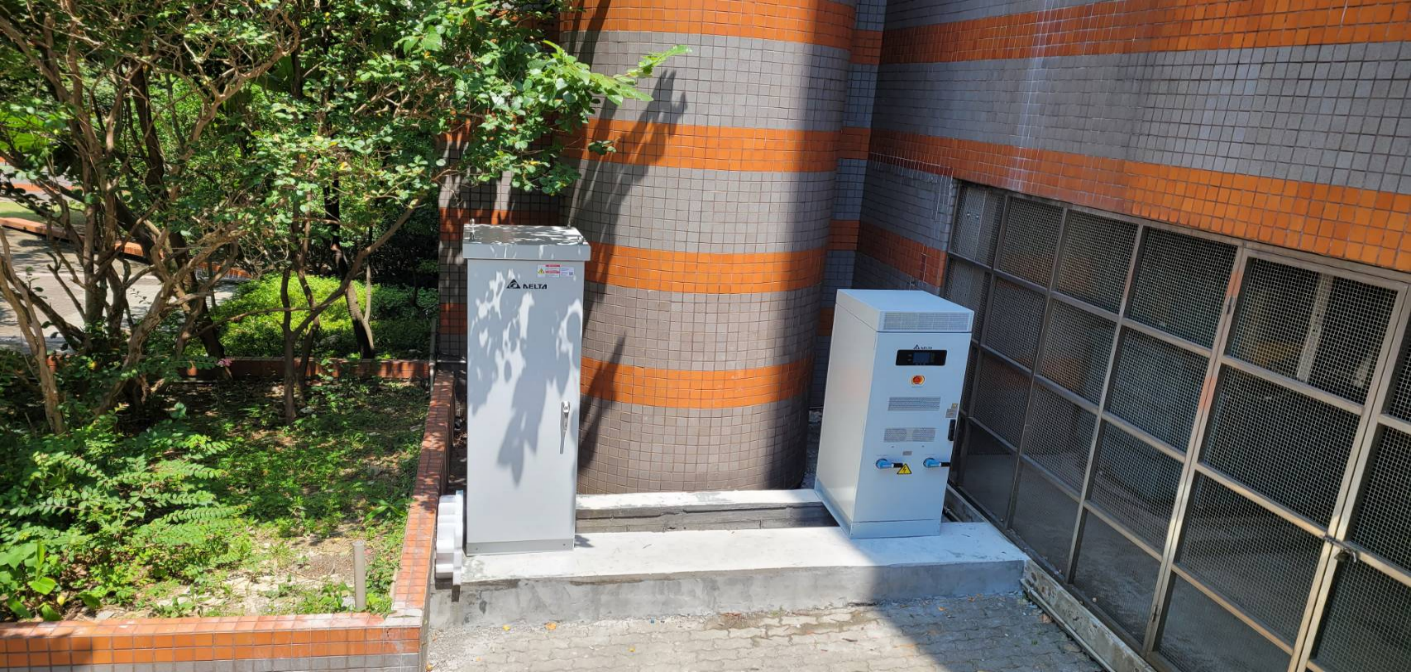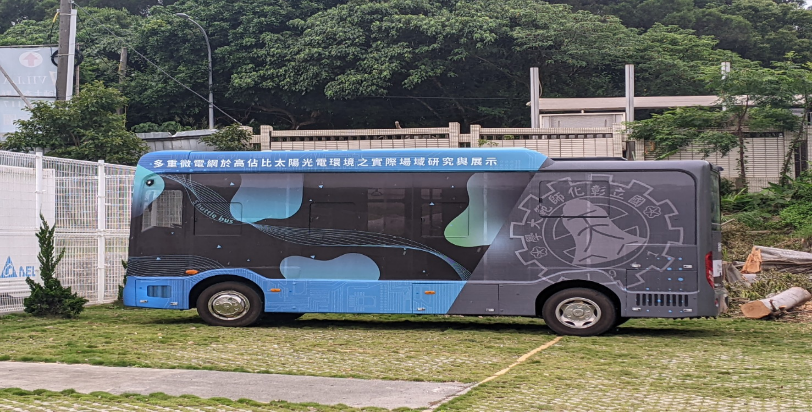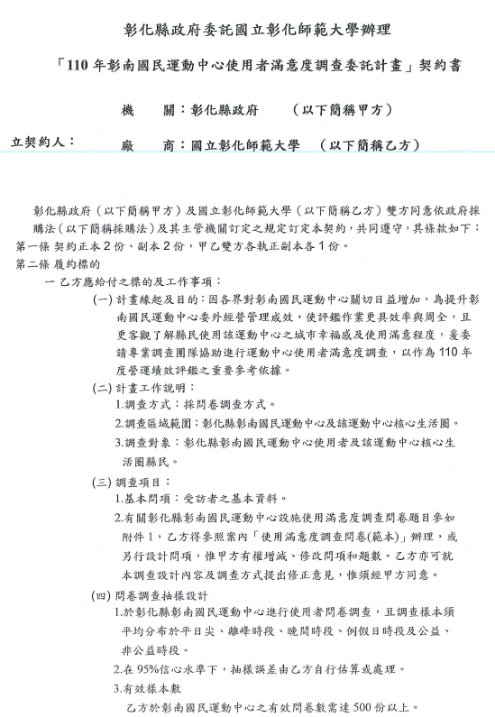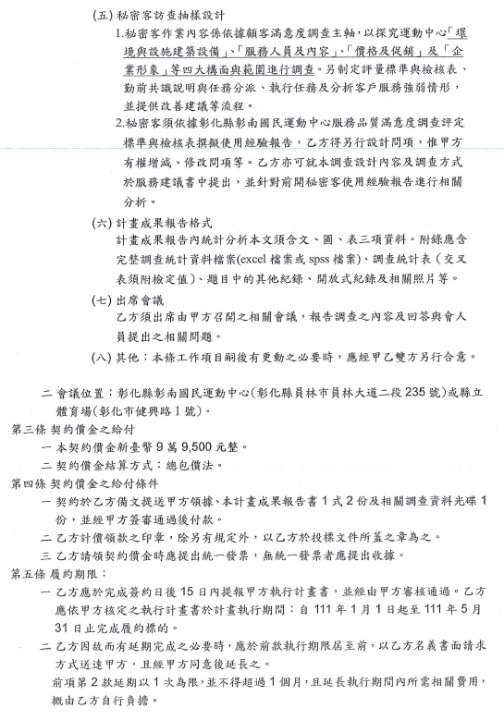SDG 16.2.3 Identify and engage with local stakeholders
According to the medium to long-term campus development plan that NCUE formulated in 2022 and revised in 2023 (Annex 16.2.3A), Chapter IV outlines the future development priorities. This plan builds upon the previous NCUE development plan from 2016 to 2023. We focus on building an open learning environment at NCUE by publicizing school-related information, so that the public can monitor the development of the school in various ways; regarding teaching, we offer courses and activities relating to local identities and encourage teachers and students to jointly explore regional issues and strengthen their connection with local institutions, so that the University and local communities can experience innovative cooperation, mutual benefit, and common prosperity.
1. Disclosure of information on NCUE’s operations:
The “Information Disclosure” section is available on the homepage of NCUE’s official website. It presents university-related information on administration, evaluation and reports, scientific research and procurement, and internal control. Local stakeholders can access the information online and provide NCUE with suggestions, guidance, and supervision based on it. Link: https://ncueinfo.ncue.edu.tw/.
2. Strengthening the connection between local institutions to realize joint exploration of local issues:
(1)NCUE invites local experts, scholars, and representatives of regional institutions (e.g. provincial and county governments, social welfare institutions, local enterprises, and community colleges) to clarify and communicate community issues to assist community development and foster an positive and harmonious environment of social participation. Among Taiwan’s universities, NCUE is a pioneer in setting up community psychological counseling and potential development centers serving people in the community. The Center provides mental health services, including potential development, for local community residents and institutions. We also link the resources of our university and community college to provide a sound education mechanism for local residents, and strengthen the interaction between NCUE and county/city governments to solve the government agencies’ problems. NCUE hopes that implementing the strategies above will help NCUE and the local regions realize innovative cooperation, mutual benefits, and common prosperity. To enhance mental health professionals’ practical training, the community psychological counseling center offers workshops on youth cases to train youth counseling specialists. Mental health professionals can acquire professional knowledge and skills in psychology that can improve the quality of their youth counseling. The NCUE community counseling clinic website can be found here: https://human1.ncue.edu.tw/files/11-1012-12.php?Lang=zh-tw.
(2)Caring for local industrial parks:
To reflect the public nature of higher education and fulfill the university’s social responsibility, NCUE’s Innovation Incubation Center of the Research and Development Department actively promotes innovative businesses and assists traditional industries. In cooperation with the national strategy, we build a diversified platform taking precision machinery, smart electric vehicles, and green energy industries as the core technologies to form a refined incubation network and develop local competitive industries. Using the expertise and resources of the university, we help enterprises that are pursuing sustainable development goals to start up and grow. By providing long-term assistance in improving industrial technology and helping manufacturers obtain the subsidies in R&D provided by the government, we cultivate industrial cooperation and expand the benefits of the guidance provided by the university in the Taichung-Changhua-Nantou Region.
In recent years, NCUE has gathered diverse resources from several of its departments, academic and research institutions in neighboring areas, the Changhua County Industrial Advancement Association, public associations, and the service centers of industrial parks and has integrated the resources of teams formed by full-time teachers with practical experience. Through the guidance of experts in various professional fields, we provide manufacturers with extensive and thorough proposals, and strive to implement them. In cooperation with a neighboring university (Dayeh University), we set up the “Changhua County Local Innovative Organization Alliance” and undertook cross-discipline and cross-university cooperation to promote R&D among small and medium-sized enterprises, as well as industry–university cooperation in innovation in the Taichung-Changhua area. Faculty members with relevant expertise are sent to cooperate in R&D with manufacturers facing a problem or otherwise in need. We also encourage enterprises to apply for the subsidies in R&D provided by the government (such as SBIR and CITD) to reduce their R&D costs, enhance their innovation and R&D capabilities, and increase their innovation momentum. Please refer to Annex 16.2.3B for the implementation results of the school.
(3)Joining hands and linking with regional industries in Changhua:
Enterprises in Changhua County are mostly small- and medium-sized. The challenges faced by industrial development at this stage include technical personnel shortages, process and product upgrades, process optimization and automation, cloud platform integration and relevant data analysis, process-yield monitoring technologies, wastewater treatment and environmental monitoring, energy and water conservation, and green energy implementation. These challenges have motivated the teachers in NCUE who are specialized in related fields to leverage resources drawn from partner universities, introduce the concepts and technologies of “smart machinery”, and the Internet of Things to transform traditional industries into smart manufacturing industries aligned with Productivity 4.0, transforming Changhua County into a “smart city”. NCUE uses the Environmental Education Center as a platform, the professional skills and abilities of faculty members working in various fields and schools are combined to integrate the theory and practice of environmental sustainability, students are guided to design core and professional courses or activities related to regional environmental issues, positive attitudes and values towards the environment are promoted, environmental education is cultivated, photoelectric green energy applications and eco-friendly breeding technology are promoted, teachers and talents are nurtured for the transformation and reconstruction of communities, and the environment and industry are improved so as to achieve sustainable environmental management and utilization.
The project “In-Depth Cultivation of Fangyuan, Working Hand in Hand with Dacheng: Industrial and Environmental Sustainability Plan of the Two Townships of Changhua County Project” website can be found here: https://zh-tw.facebook.com/NCUEUSR/.
(4)Cooperation in building Changhua’s green energy industry:
Changhua owns a wind farm that is important at a global level. A green energy industry will definitely take root in Changhua. However, energy storage equipment is crucial to the development of green energy, and the development of smart energy, especially green energy, is one of the strong features of College of Engineering in NCUE.
Energy company Ørsted donated a 1 MW/1.26 MWh megawatt-size battery energy storage system (BESS) (Figure 1) to NCUE, which is the first university in the world to accept such a piece of equipment. In the cooperation project, NCUE offers the land while Ørsted provides equipment and personnel. The two parties cooperate to support the green energy development policy of the Changhua County Government. NCUE will focus on the development of smart energy during the selection of faculty members, master’s and doctoral dissertations, and student projects, and will play a determining role in Taiwan’s green energy industry.
In addition, NCUE continues to invest in equipment and research related to energy storage systems and electric vehicles, such as small distributed 100 kW/50 kWh BESS (Figure 2) and electric bus (Figure 3). Combining a total of 2,688.75 kW of solar photovoltaic power in two campuses and the microgrid dispatching technique, the school’s smart green energy pilot system will serve as a major indicator for the industry and academia. Link:
https://economic.chcg.gov.tw/03bulletin/bulletin02_con.asp?bull_id=281030.
|
|
|
Figure 1. The 1 MW/1.26 MWh Energy Storage System in Baoshan Campus |
|
|
|
Figure 2. The 100 kW/50 kWh Energy Storage System in Baoshan Campus |
|
|
|
Figure 3. The 30 kW/78 kWh Pure Electric Bus |
(5)“Shaping a Vibrant Healthy City and Assisting Local Exercise Behavior Surveys”:
Changhua County Government aims to enhance the service quality of South Changhua Civil Sports Center, cultivate regular exercise habits among residents, and shape a vibrant and healthy city. In 2022, the Changhua County Government entrusted NCUE with conducting a “South Changhua Civil Sports Center User Satisfaction Survey.” This survey aimed to not only understand user satisfaction but also provide insights for operational improvements. The goal was to achieve a safe, comfortable, and high-quality operation of the Civil Sports Center, as shown in Figure 4.
(6)Other relevant measures to link with local communities:
(a)NCUE has established an off-campus rental housing service mechanism to serve neighboring off-campus landlords and students who rent off-campus residences. The project aims to strengthen the quality of NCUE’s rental housing services and effectively protect the students who rent off-campus residences. For more information, see the following websites:
i. Concrete measures to promote the safety of off-campus rental housing and services for students: https://student.ncue.edu.tw/ezfiles/17/1017/img/505/145137072.pdf.
ii. Rental safety certification webpage: http://student.ncue.edu.tw/files/14-1017-19011,r113-1.php?Lang=zh-tw.
iii. Cloud rental network: https://house.nfu.edu.tw/NCUE.
|
|
|
|
Figure 4. Changnan National Sports Center User Satisfaction Survey Contract Content (Excerpt) |
|
(b)NCUE has a parking space discount system. The underground parking lot of NCUE’s Jinde campus is open to the community or outsiders to rent on an episodic or long-term basis (30 minutes of free parking is available). Since the campus is located in Fuxing village of Changhua City, residents who live nearby can enjoy a discounted monthly rental fee. There are quotas for the applications; the quotas, service periods, application procedures, and other relevant measures are implemented according to the Office of General Affairs. Those who hire the university’s venues to hold activities can enjoy a one-time discounted fee. See details of the university parking lot management measures on the following website:
https://general2.ncue.edu.tw/ezfiles/19/1019/img/612/156554695.pdf.

